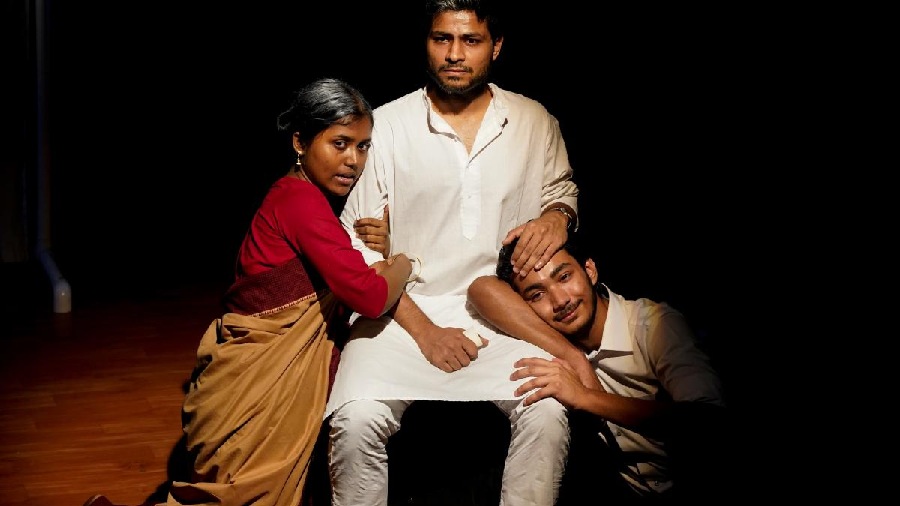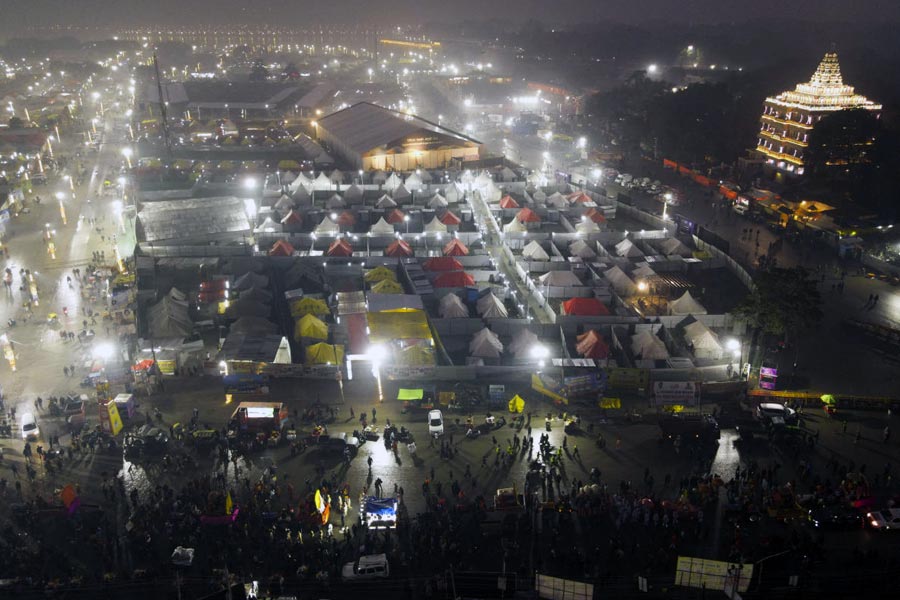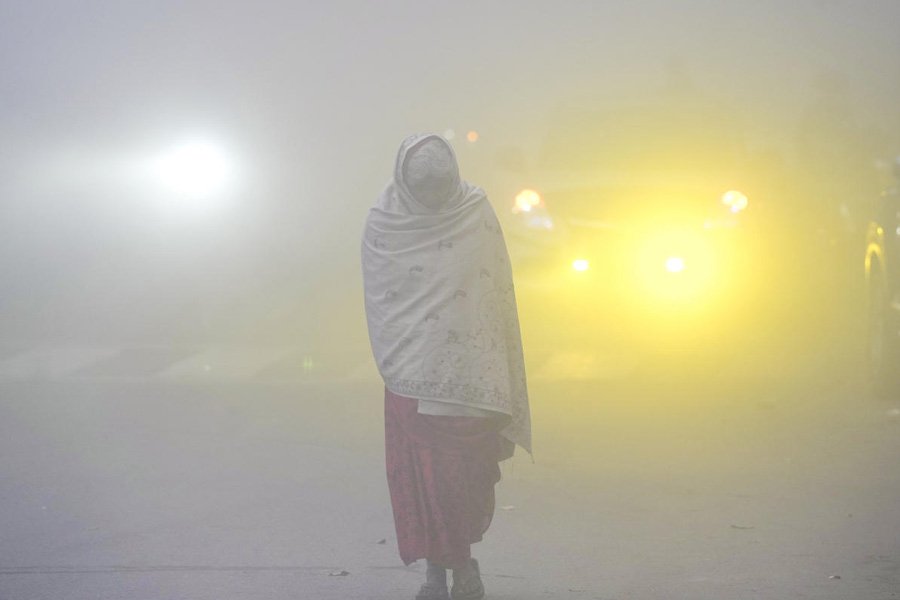Kashmir unfailingly evokes, among other things, paradisiacal vistas and a rich tradition of arts, crafts, cuisines and textiles. Sadly, Kashmir also evokes feelings of immense loss, pain and grief, with this earthly paradise having been turned into a deadly battle zone over which nationalistic/territorial egos continue to clash incessantly. In the imagination of the dramatist, Mrinal Mathur, a pashmina shawl (a supremely beautiful object produced in the region), soggy with the blood of Kashmiris and others having seeped into its intricate tapestry, is symbolic of the anguished soul of Kashmir. The text of Pashmina, taut and terse without a single superfluous word, is acutely sensitive to the issue of human suffering without being sentimental.
To her credit, the National School of Drama alumnus, Sajida Saji, who directed the play for Rangakarmee, has kept the design simple and clean, allowing the text to do its talking. For Saji, the experience of helming this production must have been a rerun of sorts, having directed the same drama for a Delhi-based group, Treasure Art Association, in 2019.
The chief concern for Saji would have been the fact that she had to work with a relatively young cast playing major characters more than double their age. In all honesty, the male and the female leads, Shubham (Amar Saxena) and Sneha Roy (Vibha Saxena), respectively, show signs of having received thorough directorial guidance and training in the matter of performative characterisation. They are all application and sincerity on stage. However, some of their movements, non-verbal gestures and intonations are chinks through which their young selves peekout, and the theatrical illusion necessary to keep audiences in a state of suspended disbelief is frequently shattered.
The supporting cast, consisting of Subhas Biswas, Sayan Subhra Bhattacharya, Neha Birari and Anirudh Sarkar, is competently convincing. The most rewarding takeaway from the play is the emotional connection it secures with the audience. Ultimately, Pashmina slips out of its regional mooring to connect to universal issues of familial love, longing and grief caused by an untimely death.











